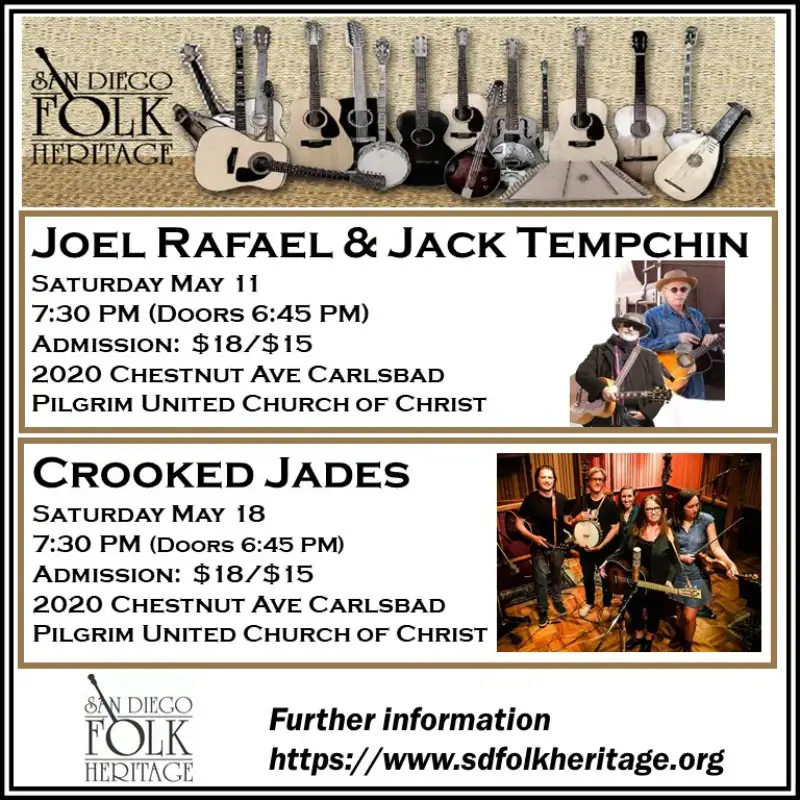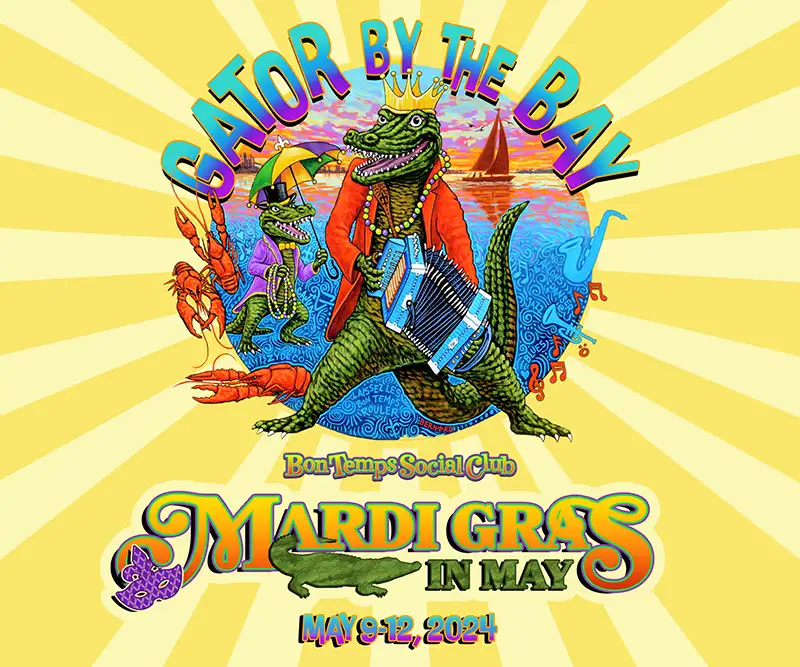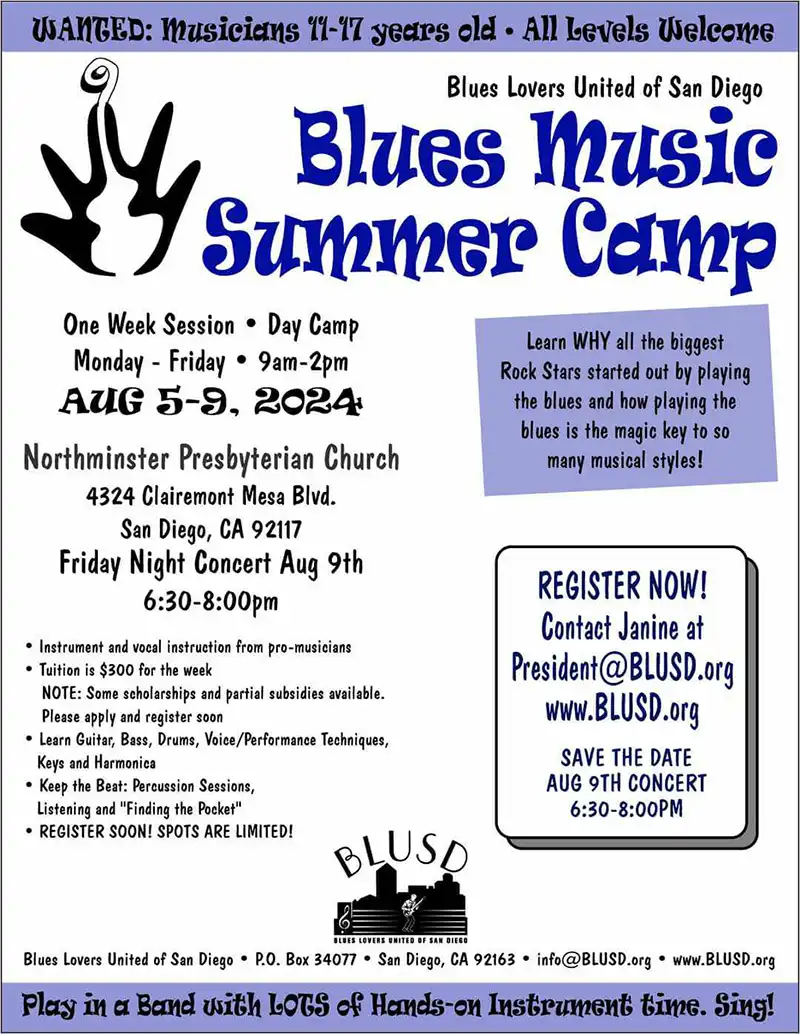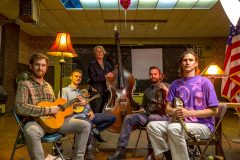Featured Stories
Echo Mountain String Band and the Importance of Jamming
The first time I jammed with the Echo Mountain String Band, I left with a fat lip. It was the annual Santa Barbara Old-Time Fiddler’s Convention in 2015. The beautiful grounds at the Rancho La Paterna were filled with fiddlers, banjoists, guitarists, and mandolinists that had gathered to jam on some old fiddle melodies and listen to featured performers on stage. I had just finished playing a set in the early part of the day, and was now treating myself to lunch at the backstage hospitality tent. While chatting with fellow musicians, unbeknownst to me, a yellowjacket snuck between my face and my ham sandwich. As a began to take another bite, the bug, in what must have seemed like an act of self-defense on its part, stung me on the lip. It hurt like hell. I tried to ignore the pain and move past the lost opportunity to eat a perfectly good ham sandwich as I set out to find some folks to jam with.
I found a jam anchored by the Echo Mountain String Band in a shady spot and knew it was where I wanted to spend my afternoon. The trio of fiddler Kyle McNalley, banjoist Peter Linden, and guitarist Jonathan Shifflet had given a fantastic set on stage earlier in the day, and they seemed like fine folks to boot. Flanked on all sides by festival-goers, the Echo Mountain folks blazed through fiddle tune standards while others like me, relatively new to the jamming scene, picked up the tunes on the fly. At the onset of each tune there would be some jammers that knew the tune better than others, but with each repetition, the group would blossom: the melody became more confident, the rhythms became tighter, and the camaraderie more joyful.
Then, after hours of playing I reached up, touched my face, and realized it had swollen tremendously while we played. I say all of this not to draw attention to myself or garner pity (okay, maybe a little) but rather to make the point of how good the playing was, and how fun it was. Over the course of the jamming, my face was swelling nearly to the point of exploding, but I didn’t even notice. It was the best jamming experience I’ve ever had and I’ve eagerly awaited the next time I’d cross paths with the Echo Mountain String Band.
Histamine reactions aside, scenes like these are the lifeblood of the string band tradition. Old-time festivals may seem torn between on-stage performers and the more dispersed jamming scene, but I like to think of festivals first as a bustling scene of jamming, out of which some very fine performers percolate and float onto stage before drifting back into the bustle. That permeability between performer and audience, “professional” and “amateur” is a real attraction for many old-time enthusiasts. Over the course of any jam, music gets revitalized, folks get energized, strangers are made into friends, and the story of a very old musical tradition gets extended a little bit more.
The roots of string band music extend to the very founding of the country. At the heart of tradition are two instruments that are likely the most iconic in terms of American musical heritage: the banjo and the fiddle. Together they embody the multicultural history of old-time music and, in a broader sense, American society. Fiddles were brought to America by lots of different peoples, but most relevant to old-time music are the Irish, Scottish, and Scots-Irish (Scottish folk from Ireland… it’s a long story). The banjo has its origins in West Africa. Though its exact provenance and ancestry are still being reconstructed and debated, it’s well-established that banjos or banjo-like instruments were used by the earliest slaves of American colonies. Until sometime around the 1830s, they were considered slave instruments that no white person had ever touched.
The banjo entered into white American society largely through the minstrel show, a 19th-century variety show-like production, wildly popular across the country featuring caricatures of black culture, including slave music, as a cornerstone of its comedy. Through these touring theater shows, the banjo found its way into every corner of America, including the deep mountain hollers of Appalachia. There, Scots-Irish settlers fashioned their own banjos after those they saw in the minstrel shows, and they became a favorite instrument to accompany their traditional fiddle melodies and dance music long before guitars ever arrived. Though playing reels and hornpipes from the British Isles, these white mountain players often continued to play the instrument using the African-derived playing techniques of slaves known today as “clawhammer” or “frailing,” which added new syncopations and rhythmic vitality to their music.
This blending of European and African-derived musical sensibilities continued into the 20th century as white Appalachians and Southerners tried to imitate and incorporate the blues melodies and ragtime rhythms of black musicians into their playing. Concurrently, mail order catalogues were making cheap guitars and mandolins accessible to ever more remote communities, where they thickened the raw sound of banjo and fiddle duos. When recording companies made their first trips down south in the 1920s to make commercial recordings of mountain musicians in their “native habitat,” the modern American string band, as we now think of it in terms of instrumentation and repertoire, crystallized.
Today, bands like Echo Mountain continue to draw from that template. Festivals like the Santa Barbara Fiddler’s Convention draw on the example of the southern conventions and competitions that have preserved and promoted the finest practitioners of old-time arts for nearly a century. When folks jam, they’re continuing to enjoy the music more or less how it always has been: amongst friends or soon-to-be friends for fun. “I got hooked into old-time because I just enjoyed the conviviality of the jams,” says fiddler Ben McNally, “Just getting friends together to pass the bottle and play all night.”
Members of Echo Mountain found each other through their own circulations via Los Angeles’ web of old-time jams spread across public bars and musicians’ homes. According to banjoist Peter Linden, “There was no connection between any of us before. These people I’ve only met because we were all pursuing what we loved. It’s really beautiful.” As jamming fostered friendship and a mutual appreciation of each other’s musicianship, a stable but always evolving collective formed. Since I saw them at Santa Barbara, Echo Mountain has expanded from a trio to a quintet with Kelly Marie Martin and Ben Kramer trading off on guitar and bass. Individually, their musical journeys have spanned punk rock and jazz in places anywhere from Southern California up to Alaska. Along the way, each found their own inroad to traditional string band music, whether it was hearing some haunting, otherworldly performance on a dusty 78rpm record from 1925 or seeing a modern master perform live.
Together, they have set out to explore a broad spectrum of old-time American music. The band was founded on a core repertory of fiddle music, but they haven’t been content to stop there. Most of us with the old-time fiddle tune “bug” love to research, analyze, and discuss the endless minutiae of the music, but good performers always try to keep that urge in check once they move to the stage for an audience. As Jonathan put it, “We can’t just play fiddle tune after fiddle tune and expect people to care if we think tunes in the key of G sound so much cooler than tunes in C.” With the addition of Kelly Marie Martin, the band has begun exploring vocal harmony, much as she did with her previous band, the acclaimed Triple Chicken Foot. They’ve looked to ballad songs that have traditionally fit under the banner of “old-time music,” but they’ve also branched out into great songs of early country musicians like Merle Travis and Americana songwriters like John Prine.
With excellent chops, a robust, authentic sound, and gorgeous vocal harmonies, the Echo Mountain String Band has been quickly grabbing everyone’s attention in the California old-time scene. Take a look at any old-time, folk, or fiddle festival in the state this summer and you’ll likely see their name on the bill. San Diego will have their opportunity to hear this fantastic band debut their new quintet lineup on Saturday, May 13th, at the Kalabash School of Music & the Arts as part of their American Folk Music concert series. The following day, Sunday, the 14th, members of the band will be leading workshops in old-time guitar playing and three-part harmony singing. For more information on these exciting events, visit kalabasharts.com/events .
For more information on the Echo Mountain String Band, visit their Facebook page at facebook.com/echomtn/
Clinton Davis, PhD, is a freelance musician and educator raised in Kentucky and based in San Diego. You can hear him play around town solo or with his award-winning group G Burns Jug Band. For more information visit http://clintonrossdavis.com








